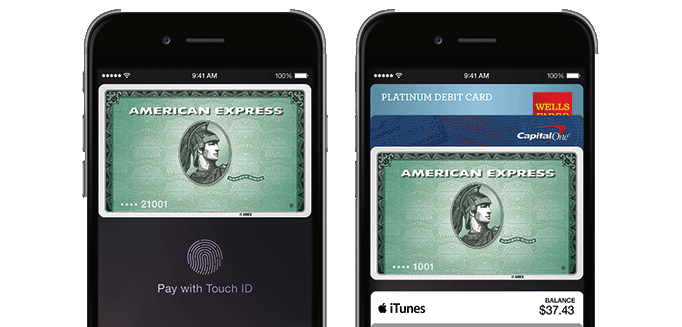
With retailer data-security breaches making news, consumers may have more reason than ever to be concerned about the safety of their personal financial information. A host of new technologies, including eBay’s PayPal and Google’s Wallet, have attempted to create easy, secure and private ways to pay for goods online, in-store and on mobile devices. Now Apple is getting into the game, with the Apple Pay service. Apple Pay works with the company’s new iPhone 6 and iPhone 6 Plus through a new NFC antenna design, a dedicated chip and the company’s proprietary Touch ID technology. Apple Pay will also work with the company’s newly announced Apple Watch, extending Apple Pay to some 200 million owners of iPhones.
Apple Pay supports cards from the three major payment networks — American Express, MasterCard and Visa. In addition to the nearly 300 Apple stores in the U.S., other retailers that will support Apple Pay include Bloomingdale’s, Macy’s, McDonald’s, Whole Foods and many more. Apple Pay handles purchases through apps in the company’s online app store as well.
“Security and privacy is at the core of Apple Pay,” said Eddy Cue, an Apple senior vice president. “When you’re using Apple Pay in a store, cashiers will no longer see your name, credit card number or security code, helping to reduce the potential for fraud. Apple doesn’t collect your purchase history, so we don’t know what you bought, where you bought it or how much you paid for it. And if your iPhone is lost or stolen, you can use Find My iPhone to quickly suspend payments from that device.”
Read our past coverage of retailer payment systems here: Retailers call for hack-proof debit cards and U.S. retailers and consumers eagerly await credit-card security fixes.
